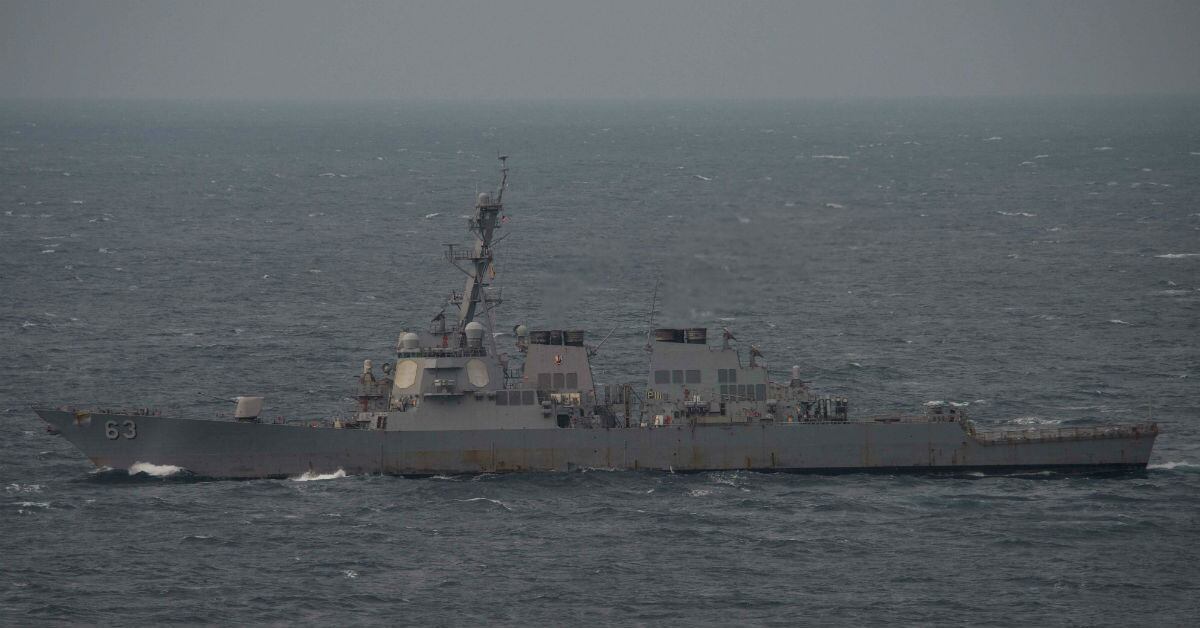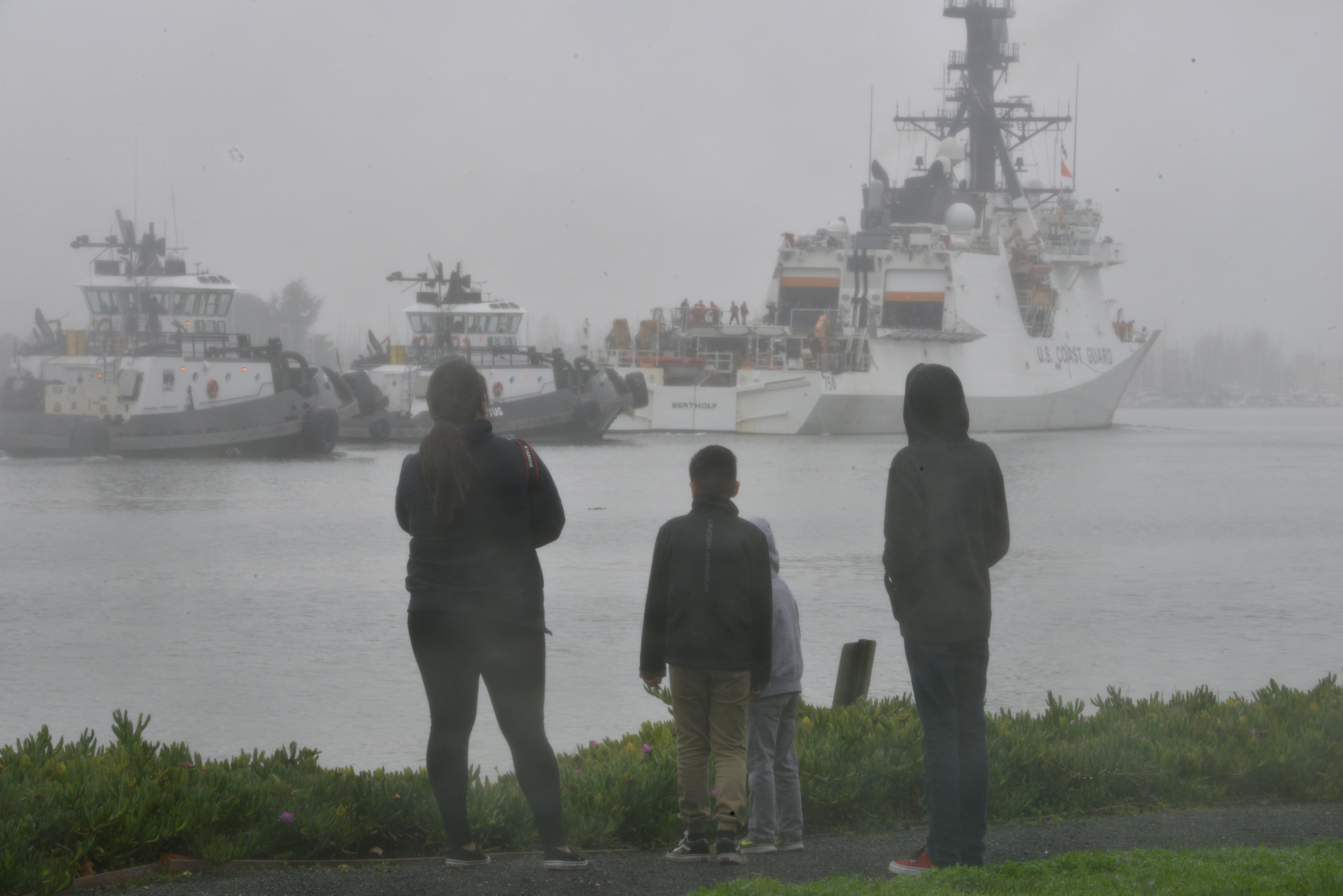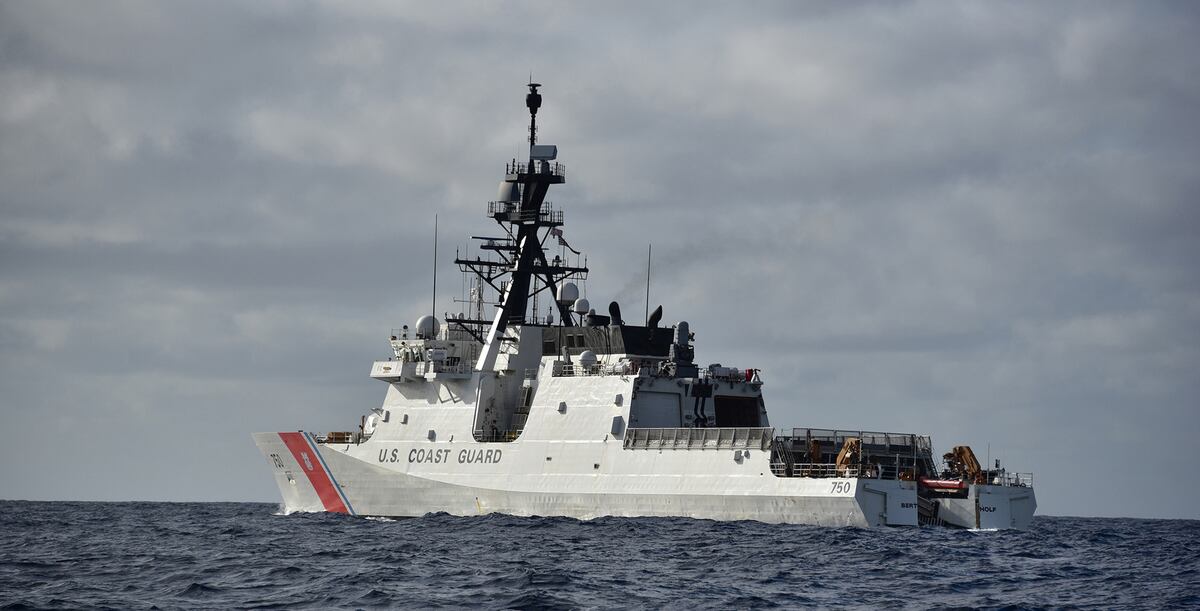A U.S. Navy destroyer and a Coast Guard cutter transited the Taiwan Strait, the latest demonstration of American resolve to portray it as an international thoroughfare instead of a Beijing backwater.
The guided-missile destroyer Curtis Wilbur and the maritime security cutter Bertholf made the trip on March 24 and 25 “in accordance with international law,” according to Navy 7th Fleet spokesman Cmdr. Clayton Doss.
“The ship’s transit through the Taiwan Strait demonstrates the U.S. commitment to a free and open Indo-Pacific,” Doss said in a prepared statement.
“The U.S. will continue to fly, sail and operate anywhere international law allows.”
On Monday, Chinese Foreign Ministry spokesman Geng Shuang told reporters that Beijing “has been closely monitoring the U.S. warships sailing through the Taiwan Strait” and that his government “also made representations to the U.S. side."
“We urge the U.S. to strictly abide by the one-China principle and the three China-U.S. joint communiques, prudently and properly handle Taiwan-related issues, and avoid damaging China-U.S. relations and cross-straits peace and stability,” he said.
The cutter Bertholf arrived in Sasebo, Japan, on March 3 to add a law enforcement touch to ongoing efforts in the East China Sea to enforce United Nations Security Council resolutions barring contraband ship-to-ship transfers of coal, fuel oil and other supplies by North Korea.
During its brief East China Sea patrol, Bertholf’s California-based crew operated under the tactical control of the Navy’s Japan-based 7th Fleet.
That’s not unusual duty for Coast Guard personnel, who often embark on Navy vessels in the western Pacific to enforce a wide array of treaties, especially those designed to combat illegal fishing and narcotics trafficking.
But the provocative use of Coast Guard vessels to perform freedom of navigation operations — or FONOPs — also has been discussed for years, according to a 2017 Center for International Maritime Security piece by Michael Armour, a retired Army officer and former professor at the Naval War College.
FONOPs involve U.S. warships sailing in international waters, particularly those of the South China Sea, where Beijing has seized, lengthened and fortified a string of rocks, islets and atolls to assert territorial claims disputed by neighbors such as the Philippines, Vietnam and Taiwan.
RELATED

China has long used its coast guard vessels to enforce these claims but it remained unclear if U.S. Coast Guard cutters would participate in FONOPs.
“It may be that these U.S. Coast Guard units, if deployed to the area, may turn out to be a combat multiplier or a diplomatic plus,” Armour wrote. “However, given the meager USCG budget and the limited assets of the service, their deployment may prove to be insignificant or even fraught with danger.”
Sitting off the coast of mainland China, Taiwan has been a source of consternation for Beijing for decades.
Beijing’s leaders see the breakaway republic on the island as part of China while Taipei has hinted at permanent independence.
The latest transits through the strait by the Bertholf and Curtis Wilbur arrived alongside news that the White House has granted tacit approval for Taiwan to buy more than 60 F-16V fighters, part of Taipei’s continuing effort to upgrade its aging fleet of Fighting Falcons.
While Taiwan’s request still needs handling by the Pentagon and U.S. State Department before Congress weighs in, the White House decision sparked protests from Beijing, which remains mired in a trade dispute begun by President Donald J. Trump’s administration.
American defense analysts have warned in recent months that as China’s military capabilities advance, Beijing might become emboldened to strike out in the region, and Taiwan remains a potential flash point.
During a Jan. 15 meeting, Gen. Li Zuocheng, the head of the Joint Staff Department of China’s Central Military Commission, reportedly told Chief of Naval Operations Adm. John Richardson that Beijing would back its claim on Taiwan “at any cost.”
He also cautioned the United States to avoid supporting a Taipei push for permanent independence, according to Agence France-Presse.

Geoff is the managing editor of Military Times, but he still loves writing stories. He covered Iraq and Afghanistan extensively and was a reporter at the Chicago Tribune. He welcomes any and all kinds of tips at geoffz@militarytimes.com.





